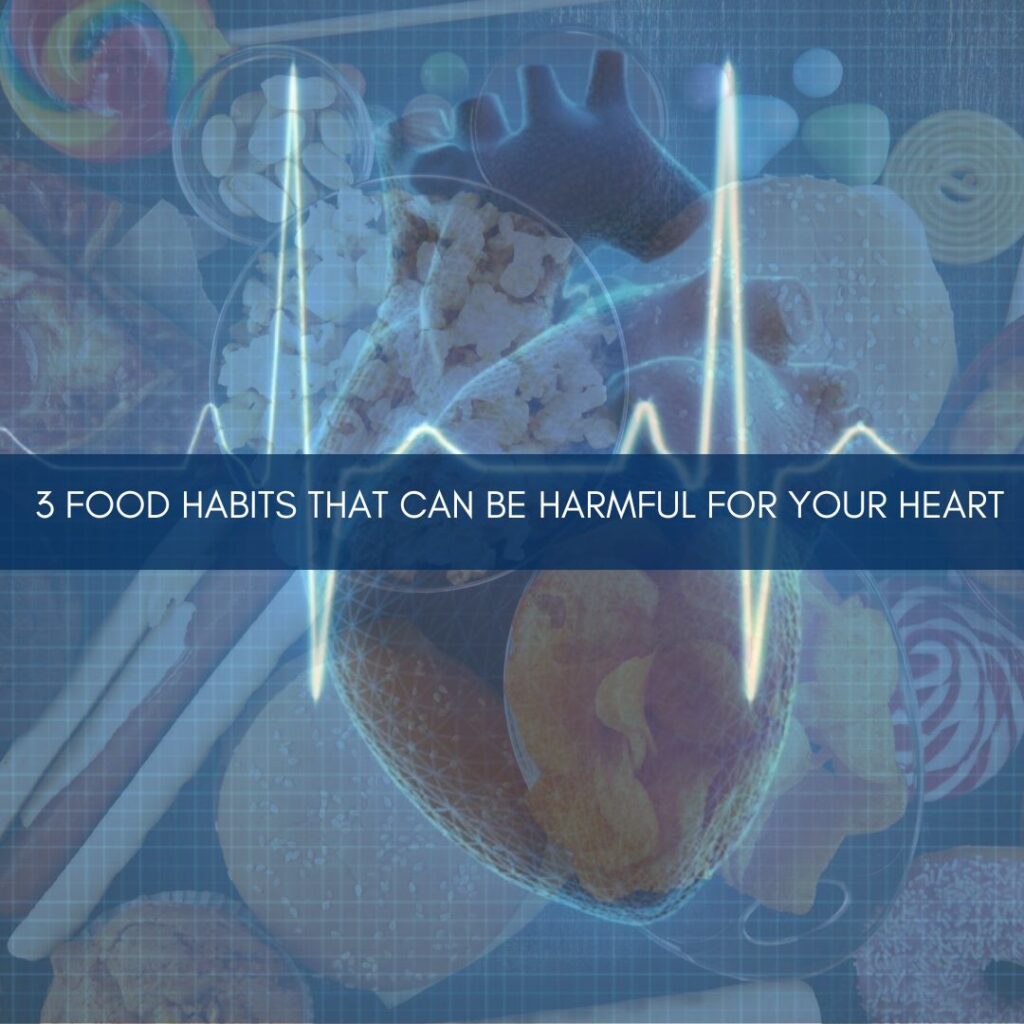Did you know that some of your favorite Indian dishes might be secretly sabotaging your heart health? It’s true! While Indian cuisine is known for its vibrant flavors and diverse ingredients, certain food habits common in India can increase your risk of heart disease. But don’t worry; we have got you covered with some eye-opening insights and helpful tips to keep your heart happy and healthy!

Ghee: First things first, let’s discus about the elephant in the room: ghee. This clarified butter is a staple in many Indian households and is often used generously in cooking. However, despite its rich flavor, ghee is high in saturated fat, which can raise your LDL (bad) cholesterol levels and increase your risk of heart disease. In fact, a study published in the Indian Heart Journal found that individuals who consumed more than 20 grams of ghee per day had a significantly higher risk of coronary heart disease compared to those who consumed less than 10 grams per day.
| Ghee Consumption (per day) | Risk of Coronary Heart Disease |
| Less than 10 grams | Lower risk |
| More than 20 grams | Significantly higher risk |
Deep-fried snacks: But it is not just ghee that you need to watch out for. Let’s dive deeper into the dangers of deep-fried snacks and trans fats, and how they can impact your heart health. Get ready for some mind-blowing facts and figures!
Deep-fried snacks like samosas, pakoras, and vadas are incredibly popular in India, but they’re not doing your heart any favors. Here’s why:
- These snacks are often cooked in unhealthy oils that are high in saturated and trans fats.
- When these oils are heated to high temperatures for deep-frying, they can undergo chemical changes that make them even more harmful to your heart.
- Trans fats, in particular, are notorious for raising your LDL (bad) cholesterol while lowering your HDL (good) cholesterol, which can significantly increase your risk of heart disease.
But just how much trans fat is too much? Brace yourself for this shocking statistic from the World Health Organization:
| Trans Fat Intake (% of daily calories) | Increase in Heart Disease Risk |
| 2% | 23% |
That’s right, consuming just 2% of your daily calories from trans fats can increase your risk of heart disease by a whopping 23%! To put that into perspective, if you consume a 2,000-calorie diet, just 4 grams of trans fats per day can put you in the danger zone.
But wait, there’s more! Many deep-fried snacks in India are also high in calories and low in nutrients, which can contribute to weight gain and obesity. And as we know, being overweight or obese is a major risk factor for heart disease.
So, what can you do to protect your heart while still enjoying your favorite snacks? Here are some tips:
- Opt for healthier cooking methods like baking, grilling, or air-frying instead of deep-frying.
- Choose snacks made with whole grains, legumes, and vegetables instead of refined flours.
- Read food labels carefully and avoid products that list partially hydrogenated oils (a major source of trans fats) in the ingredients.
- Limit your intake of deep-fried snacks and choose heart-healthy options like fresh fruits, nuts, and seeds instead.
By making these small changes to your snacking habits, you can significantly reduce your risk of heart disease and keep your heart in great shape. So, the next time you’re tempted to reach for that deep-fried samosa, remember the impact it can have on your heart and make a healthier choice instead. Your heart will thank you in the long run!
Salt: Another habit that can harm your heart is consuming too much salt. Many Indian dishes, especially pickles, chutneys, and street food, are high in sodium. Excessive sodium intake can lead to high blood pressure, which is a major risk factor for heart disease. The Indian Council of Medical Research recommends limiting your daily sodium intake to less than 2,000 milligrams (about 1 teaspoon of salt) to maintain a healthy heart.
| Food Item | Sodium Content (per 100 grams) |
| Pickles | 1,000-2,000 mg |
| Chutneys | 500-1,000 mg |
| Street Food | 500-1,500 mg |
But don’t despair! There are plenty of heart-healthy Indian food options to choose from. Incorporating more fruits, vegetables, whole grains, and legumes into your diet can help lower your risk of heart disease. Opt for cooking methods like grilling, roasting, or steaming instead of deep-frying. And when it comes to spices, go for antioxidant-rich options like turmeric, ginger, and garlic, which have anti-inflammatory properties that can benefit your heart.
So, the next time you are tempted to indulge in that extra-large serving of ghee-laden curry or reach for that deep-fried samosa, remember the impact it can have on your heart. By making small changes to your food habits and embracing heart-healthy options, you can enjoy the delicious flavors of Indian cuisine while keeping your heart in tip-top shape. Your taste buds and your heart will thank you!